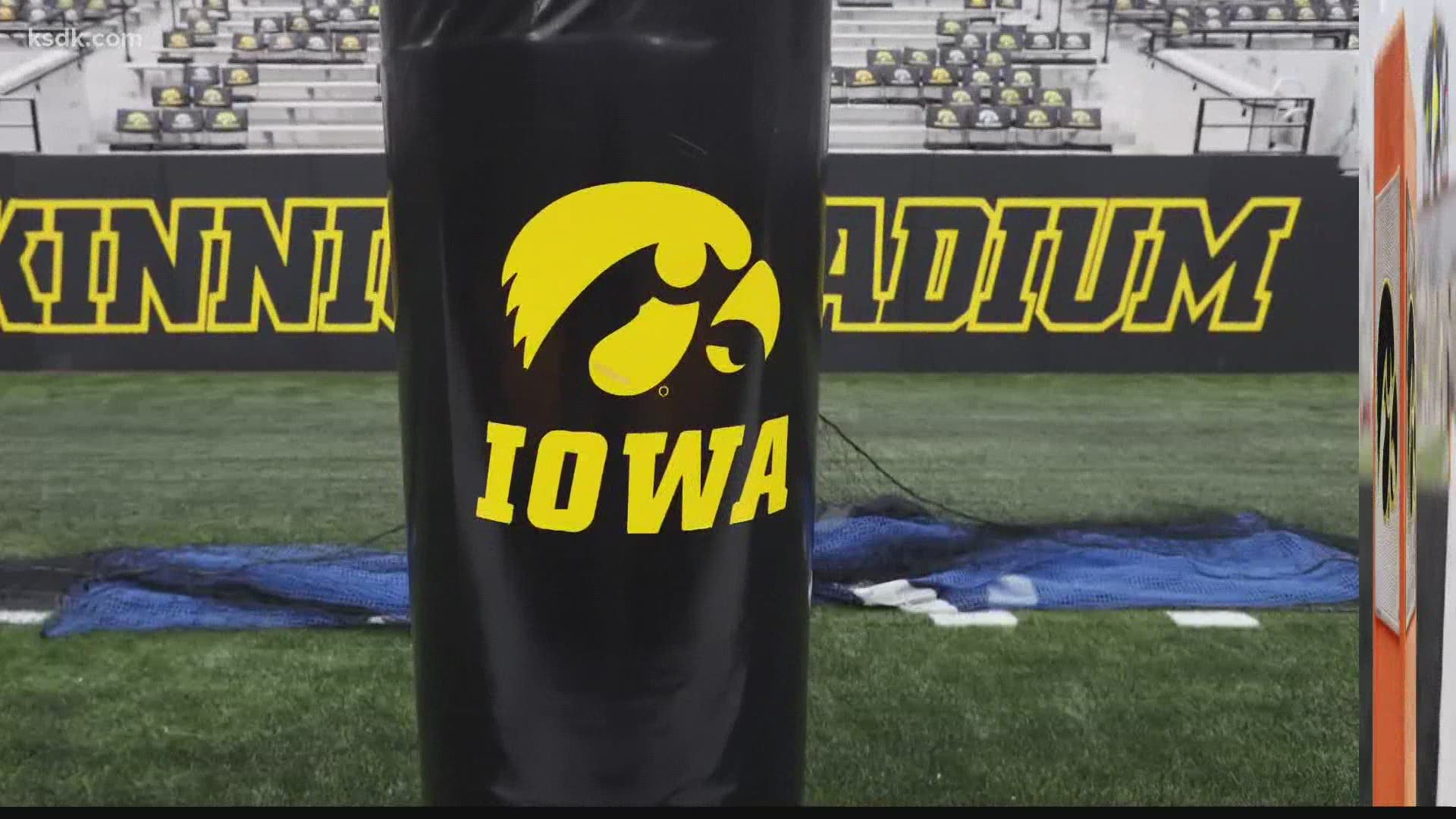ST. LOUIS — In a time where there are no distractions from sporting events or award shows, more and more people are finding the courage to speak up about problems in America. That includes college football players.
From the outside looking in, the Iowa Hawkeyes are one of the more historic football teams in the country.
But the program known for its strength is now trying to address its weaknesses.
“The biggest things for me was a lot of favoritism, a lot of racial divide between the blacks and whites and how they were treated,” said former Hawkeye Andre Harris.
After graduating from Kirkwood, he attended Iowa from 2013 to 2015 and said he saw his fair share of things that weren’t right before he had to transfer.
After coaching alongside Iowa head coach, Kirk Ferentz for 21 years, Chris Doyle, the nation's highest-paid strength coach, was put on leave after reports indicated he mistreated African American players.
“Obviously things would happen where he would make such comments, and as a big group, you like hold on now, you kind of overstepping your boundaries,” said Harris.
In a program where the strength coach is most valuable to the team, Harris said it was often Doyle’s word versus theirs, and there never was a chance to explain things from the players' point of view.
Harris said black players were subject to harsher punishments, more frequent drug tests, and more scrutiny from all the coaches. He said being an African American in that program consistently felt like you were one strike away from being kicked off the team.
“It seemed like they were almost like we saved y’all, so y’all kind of work for us,” he said.
Christian Kirksey, a St. Louis native who also played at Iowa and is now an NFL star, admits things weren’t always easy. He said in a post on Twitter, “I too felt nervous or out of place to discuss the topics of racism and injustice.”
He also said, “I’ve sometimes felt as if a black athlete had to work twice as hard and go above and beyond to feel accepted.”
Harris said the racial bias wasn’t just on the football field and weight room, either.
“I wanted to pursue an engineering degree,” he said. “I was told that basically to take something easier to fit around the football program while we had white teammates allowed to take whatever.”
Harris said while trying to live up to the “Iowa Standard’, he developed anxiety and suffered from depression. But, with fear of not touching the field, he kept quiet and didn’t bring it up to coaches. He said a white player on the team spoke up about his depression, he was given time off, and then an opportunity to play once he returned. Harris did not think black players had that luxury, which often led to a lot of transfers.
“The year 2012-2015 I think we had 20 plus black athletes transfer,” said Harris.
When asked if he would allow his son to play football at Iowa if things don’t change, Harris said he would not. He said the bond he created with some of his teammates is irreplaceable, but that things inside that program need to change.
“Just embracing everybody from all around the world and then hopefully empower players beyond the field,” he said.
Kirk Ferentz has made several statements saying he failed his former and current players by not letting their voices be heard, but vowed to fix the problem moving forward.
OTHER STORIES
RELATED: 'I’m 65 and we’re talking about problems we talked about in 1954’ | Art Holliday on today’s America
RELATED: Opinion | How a love/hate relationship with Major League Baseball is brewing for many this summer

